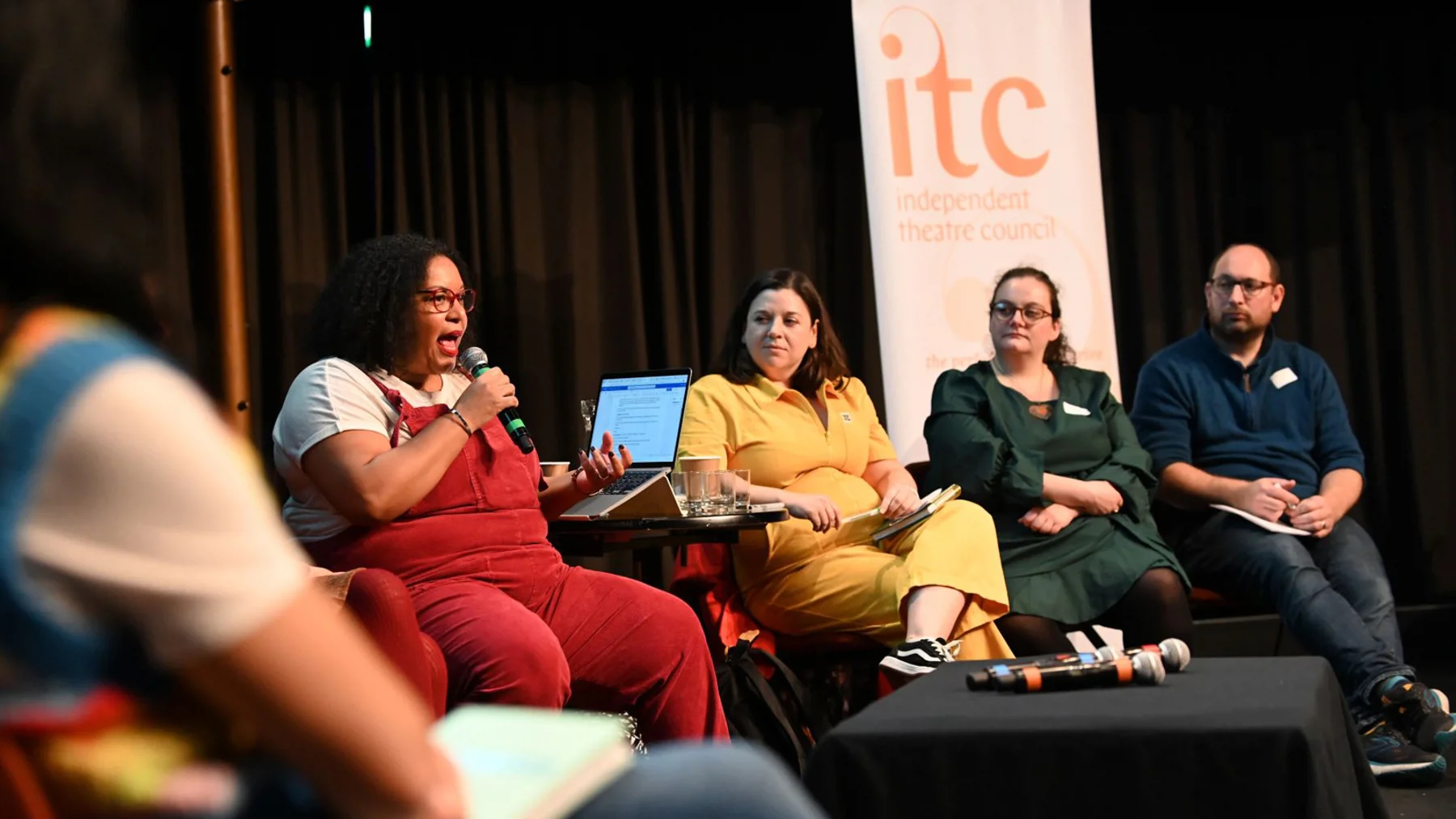Equity and Independent Theatre Council (ITC) have agreed major improvements to pay and financial provisions for performers, stage management and choreographers. The new Ethical Manager Agreement 2024-2027 will see pay on the minimum weekly and daily rate, and all other financial provisions – such as commuting costs, living away allowance, and daily meal allowances – rise by 5% every year during the agreement’s three-year length.
This demonstrates mutual recognition from Equity and ITC of the impact of the cost-of-living crisis on workers and the need to support them as much as possible.
ITC is the management association representing the independent performing arts sector, including individual producers, non-profit organisations, theatre companies with charity status, community theatres and more. ITC members with Ethical Manager Status use union-approved contracts offering at least the minimum terms and conditions set out in the Ethical Manager Agreement.
The new agreement for performers, stage management and choreographers runs from April 2024 to April 2027. It sees increases of 5% to the minimum weekly salary each year, rising from the current minimum of £545 to:
- £572.25 in the 24/25 financial year
- £600.86 in the 25/26 financial year
- £630.90 in the 26/27 financial year
The deal demonstrates ITC and Equity building further on the impressive improvements to terms and conditions on the Ethical Manager Agreement 2023-24. This one-year agreement saw a 10% increase to the minimum weekly salary and over 20% increase to minimum daily fees for performers and stage management, plus a raft of other increases for meals, daily accommodation, commuting allowances, and more.
Given the generally younger workforce in the theatre sector as a whole, it’s vital for negotiations to encapsulate the experience and voice of our young members, which it did. I’m therefore delighted with the outcome, which I think will not only help young members, but all Equity members working under the agreement.
Dian Cathal of Equity Young Members Committee, part of the working party for negotiations
The landmark 2024-27 three-year deal will also give ITC Ethical Manager producers a stronger basis to plan budgets in advance, better alleviating the difficult job of managing a company’s accounts sustainably and long-term.
Directors and designers are covered by a one-year 2024-25 deal with a 5% pay increase. Equity intends to negotiate for further changes to terms and conditions for director and designer agreements later this year, for commencement 2025, reflecting efforts to prioritise its valued director and designer members.
ITC and Equity consulted with members in advance of negotiations to ensure a process in which both parties could understand and sympathise with the challenges faced, leading to a constructive, respectful and diplomatic negotiation process.
In a landscape in which there is brazen exploitation of workforces, ITC and Equity hope that the outcome of the recent negotiation serves as a strong example for other producers to follow.
Charlotte Jones, Chief Executive of ITC, said:
“ITC has held wide-ranging discussions on the ITC/Equity agreements at forums throughout the UK and has a strong mandate from its members to continue to improve working conditions. The ITC/Equity minimum terms are used as a basis for funding applications and underpin good practice right across the sector. We are proud of our members’ commitment to putting people first and looking after their workforce whilst navigating an increasingly difficult funding climate. A three-year agreement is helpful for budgeting and planning.”
Karrim Jalali, Industrial Official for Equity, said:
“We’re proud to continue to work with ITC in such a positive direction. It’s very easy to give lip-service to the difficulty workers in the industry face, but ITC and its Ethical Manager members consistently demonstrate a genuine commitment to improving the industry. ITC and its Ethical Manager members understand the value of performing arts in dark and difficult times because they know the work is a moral and cultural necessity.”
Alison King, who has been participating in negotiations as the Chief Executive of Turtle Key Arts, a performing arts organisation renowned for its commitment to accessibility, and an ITC Member with Ethical Manager Status, said:
“It’s so important that companies listen to concerns around pay and navigating the cost-of-living crisis in the UK for performers, stage management and creatives. We want to support and help as much as we can, as we care. We know how difficult it is for many to make ends meet in the industry. That’s why we need to see this reflected not only in the funding asked for, but through increases in fees and commissions awarded, in recognition of the rising costs to produce work and pay people fairly. Without more arts funding, maintaining the independent arts sector could become unsustainable.”
Dian Cathal of Equity Young Members Committee, part of the working party for negotiations, said:
"Given the generally younger workforce in the theatre sector as a whole, it’s vital for negotiations to encapsulate the experience and voice of our young members, which it did. I’m therefore delighted with the outcome, which I think will not only help young members, but all Equity members working under the agreement."




